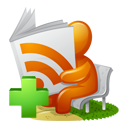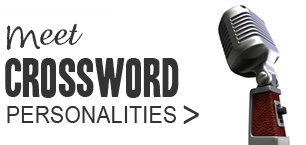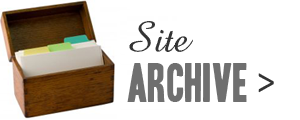Are you an aspiring solver, have been reading Crossword Unclued and other guides carefully and are yet disappointed with your progress at solving?
An earlier post of mine (link) had tips for beginners to improve solving technique. But the technique comes much later. Hurdles that struggling solvers face are more psychological than skill-related, and the ideas below are to help you overcome those mental blocks.
Follow these and I can guarantee you'll see an improvement.
1. Stop Reading, Start Solving

That's the wrong way to go about it! Crossword solving is like cycling. No matter what tomes you read, you cannot ride a bicycle unless you actually get on it and push the pedals, taking a couple of falls in your stride. A fall doesn't mean you need to read more, it means you need to ride more.
Too much theory without solving can be counter-productive. It can make cryptic crosswords appear much harder than they are.
Many expert solvers who do whole puzzles in a matter of minutes cannot tell a cryptic definition from an &lit. And what difference does it make, really? The big thing is to solve it, not to know the fancy jargon.
My sincere advice is to put the theory aside, pick up a good cryptic crossword, read the clues with full attention and observe what they say. Don't get misled by the surface, and you will reach the answer. Take this clue:
(NIE 11-Jun-09) It used to be cut back (3) WAS<-
To solve it, all you have to do is figure out the definition ("it used to be"), and understand that "cut" = SAW. Does it matter if this is called a reversal clue type or a rotator clue type? Do you need to memorize a list of reversal indicators to know that "back" means "back"?
Not at all, right?
2. Don't Look Up Answers Too Soon

I'd suggest spending a little more time with the clues. Think of all possible meanings the words in the clue could have. Take a break, revisit the puzzle. Many times all it takes to crack it is a cup of tea.
3. Say To Yourself "It is easy, I can do it"

Azed is a hard puzzle full of obscure words. I began with that knowledge, and found myself trawling through dictionaries or giving up on anagrams even for words I actually knew. The same word in a Guardian puzzle wouldn't have bothered me, but because it's Azed, I treated it with greater awe, which made solving tougher than it could have been.
An advice as old as the hills - any self-help book will tell you this - but some clichés are worth repeating: believe that you can.
4. The Dip Is Big, Be Ready For It

Cryptic crosswords take time to excel at but the good news is, you don't have to do the full thing to enjoy it. Unlike sudoku where you either get it or you don't, in crosswords each clue solved is a reward. For many years I couldn't finish a whole puzzle but whatever little I could do was satisfying. So it will be for you.
5. Pick The Right Puzzles
A wide variety of puzzles is available to you, many of them online and for free. It is important especially at the beginning to stick to good-quality puzzles only.
Look at my set of recommendations: Crosswords For Beginners. This list contains online locations of some good crosswords on the easy side, with links to communities/blogs that discuss solutions and related details about setters, difficulty and style.
6. Enjoy It!
Relax. This is not a test of your abilities, not something only for "IIT-IIM types" (to use a phrase I've heard more than once)! It is just a game. Have fun with it.
Related Posts:
- How To Solve Cryptic Crosswords: a 7-step guide for beginners
- Crossword Index: quick access sitemap to clue type descriptions
- Interviews With Ace Solvers: solving tips and more, straight from the experts
- Crosswords For Beginners: recommended crosswords online and free
If you wish to keep track of further articles on Crossword Unclued, you can subscribe to it in a reader via RSS Feed. You can also subscribe by email and have articles delivered to your inbox, or follow me on twitter to get notified of new links.










 Follow on Twitter
Follow on Twitter Join us on Facebook
Join us on Facebook Get RSS
Get RSS

5 comments
That's some very good advice. As another xwd blogger: we love to see you reading and commenting, but staying away from the blogs until you've cleared the mind once or twice and had another look at the puzzle is really good for you.
Awesome artice! Shows the correct path to tread and very encouraging as well. Couldn't have been better.
Excellent article....Very inspiring for a beginner :)
An excellent article.
I wish to suggest that the article could have suggested enrolling with a Forum like DIY Cow initially just to see clues posted by members for each (entire) week in respect of one answer (the set word for the weekly clue writing contests) and eventually to join the contest with one's own creations. The variety that the clues bring to the table on a daily basis is quite amazing.
I joined the DIY Cow Forum after you guided me there and enjoy working out my own clues--such as they are. Thank you for your guiding e-mail and your write-ups.
S T sahasrabudhe
This is such a reassuring read for anyone stuck in the early cryptic phase. The “stop reading, start solving” point really hit home, especially the cycling analogy. It’s easy to forget that struggle is part of the process, not a sign you’re doing it wrong. I also liked the reminder that you don’t need to know the jargon to enjoy or solve clues. Really encouraging advice that still holds up years later.
Post a Comment